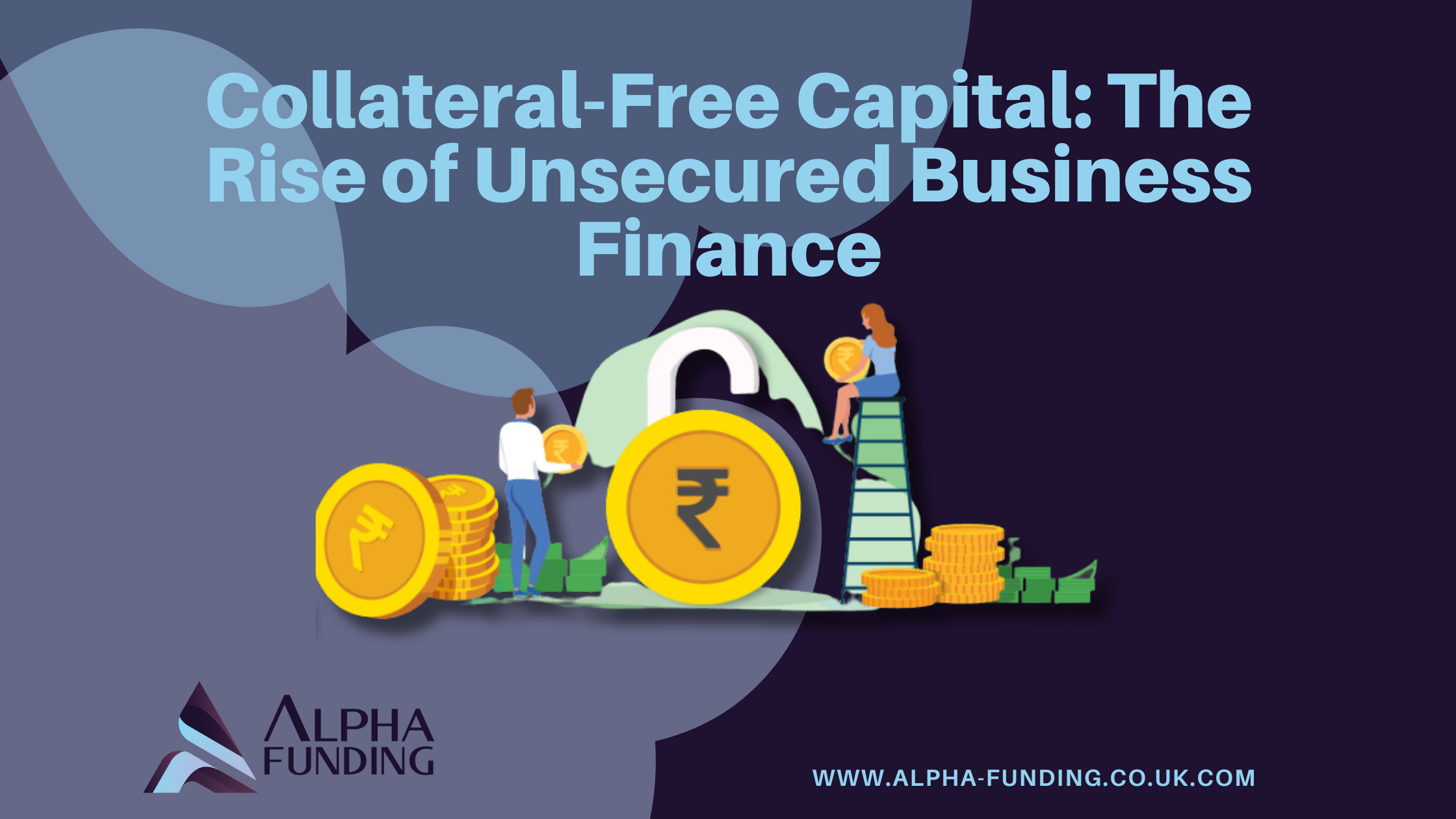
Collateral-Free Capital: The Rise of Unsecured Business Finance
In the ever-evolving business financing landscape, one trend has been steadily gaining traction: the shift toward unsecured business finance. Gone are the days when collateral was the primary requirement for obtaining a business loan. Today, businesses are exploring more flexible financing options and unsecured loans are at the forefront of this revolution.
Understanding Unsecured Business Finance
Unsecured Business Finance refers to loans provided to businesses without collateral or security. Unlike traditional loans, where assets like property or machinery act as security, unsecured loans rely primarily on the borrower’s creditworthiness.
Why the Surge in Popularity?
There are several reasons why unsecured business finance businesses are opting for it as their go-to option.
Flexibility: Without the need to pledge assets, companies can obtain funds more quickly and with fewer restrictions.
Less Risk for Business Owners: Since there’s no collateral involved, assets are not at risk of being seized in case of default.
Ideal for Start-ups and SMEs: New businesses or those without significant assets can still access necessary funds.
Quick Approval Process: With fewer checks, the approval process is often faster than secured loans.
The Benefits of Going Unsecured
No Asset Evaluation: Eliminates the time-consuming process of evaluating and valuing assets.
Credit Growth: Timely repayment can boost a business’s credit score and make it simpler to obtain financing in the future.
Flexible Repayment Terms: Many lenders offer flexible repayment options tailored to the business’s cash flow.
While Unsecured Business Finance offers numerous advantages, it’s essential to approach it with a clear understanding:
Interest Rates: Unsecured loans might have higher interest rates than their secured counterparts due to the increased risk for lenders.
Loan Amount: The amount you can borrow might be limited compared to secured loans.
Credit history is significant for loan approval and securing funds. Better interest rates.
The Future of Unsecured Business Finance
The rise of fintech and alternative lenders has further propelled the popularity of unsecured loans. With advanced algorithms assessing creditworthiness and risk, the traditional barriers to business financing are being dismantled.
Key Takeaways:
Unsecured Business Finance offers a flexible and efficient way for businesses to secure funding without collateral.
It’s especially beneficial for start-ups and SMEs, allowing them to leverage growth opportunities without significant assets.
As with all financial decisions, Before making a decision, it is crucial to thoroughly weigh the pros and cons best financing option tailored to the business’s unique needs.
Conclusion
In conclusion, as the business world becomes more dynamic, the need for flexible financing solutions like Unsecured Business Finance will continue to grow. Businesses can harness its potential to fuel their growth and expansion by understanding its nuances and benefits.
FAQs on Unsecured Business Finance
What is Unsecured Business Finance?
Unsecured Business Finances refer to loans provided to businesses without collateral or security. These loans are based primarily on the borrower’s creditworthiness rather than assets.
How does it differ from secured business loans?
While secured loans require collateral, such as property or machinery, as a guarantee for the loan, unsecured loans do not. Instead, they rely on the business’s credit history and financial stability.
Who can apply for Unsecured Business Finances?
Any business, from start-ups to established enterprises, can apply. However, lenders typically look for a good credit history and a stable income stream.
Are the interest rates higher for unsecured loans?
Generally, unsecured loans might have higher interest rates than secured ones due to the increased risk lenders take by not having any collateral to fall back on.




